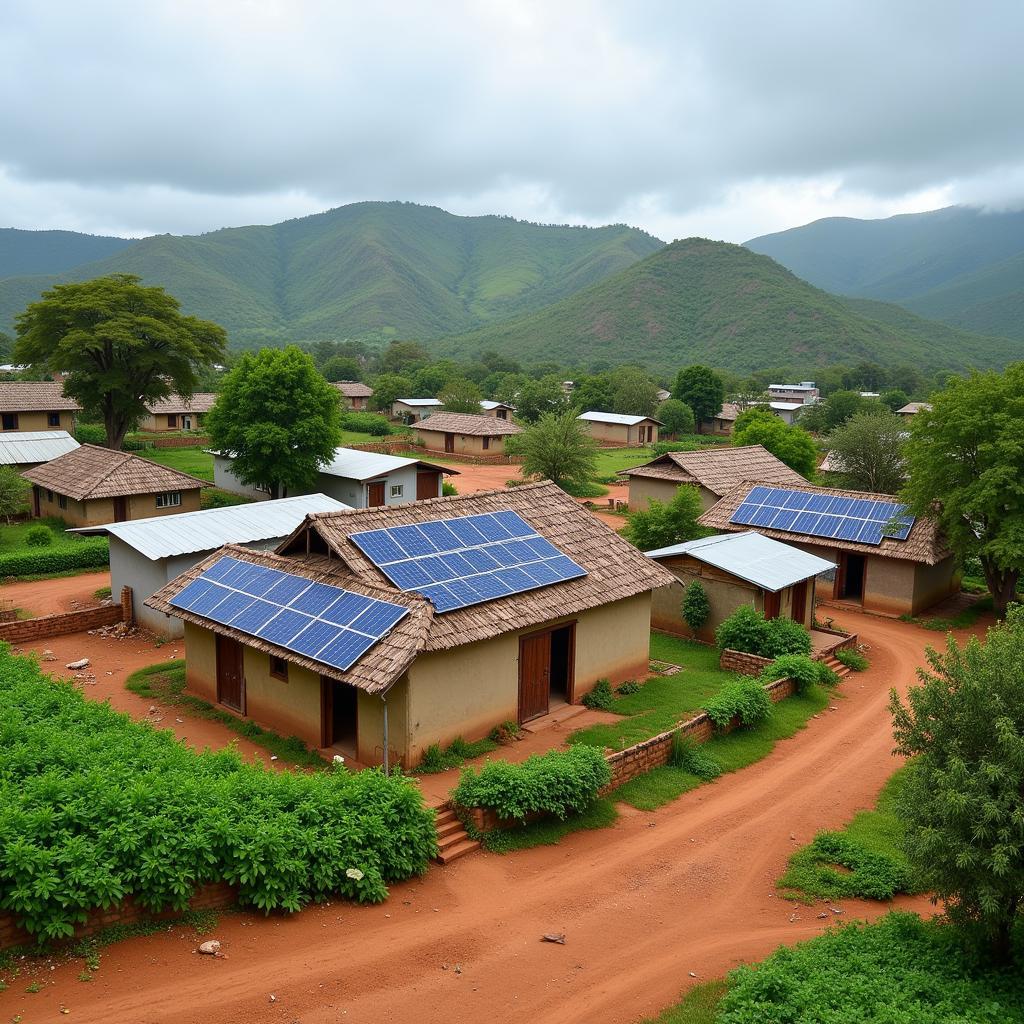Amazing African Buffalo Facts for Kids
African Buffalo Facts For Kids are a fantastic way to learn about these impressive creatures. These huge, horned animals roam the African savanna and are a key part of the ecosystem. Let’s dive into the world of the African buffalo!
What Makes an African Buffalo So Unique?
African buffaloes, also known as Cape buffaloes, are not your typical farm animals. These powerful herbivores are known for their thick hides, sharp horns, and strong herd mentality. They’re a favorite subject of wildlife documentaries and are an important part of african animals for kids discussions.
The Mighty Horns: A Buffalo’s Crown
One of the most distinctive features of an African buffalo is its horns. These aren’t just for show! The horns, which can grow up to 3.5 feet wide, are used for defense against predators like lions and crocodiles. The base of the horns, called a “boss,” is incredibly thick and protects the buffalo’s forehead during fights. What a powerful weapon!
Living Together: The Importance of the Herd
African buffaloes are very social animals and live in large herds, sometimes numbering in the hundreds or even thousands! This helps them stay safe from predators. Calves are protected within the herd, and adults work together to defend against attacks. It truly is a case of safety in numbers.
African Buffalo Diet: What Do They Eat?
African buffaloes are herbivores, which means they eat plants. They graze on grasses and other vegetation, spending much of their day eating. They are important grazers, helping to maintain the grasslands.
A Thirsty Bunch: Water is Essential
Just like us, African buffaloes need to drink plenty of water. They often gather near rivers and lakes to quench their thirst, especially during the dry season. They can even wallow in mud to cool down and protect themselves from biting insects. How clever is that?
Fun Facts About African Buffaloes for Kids
- African buffaloes are known as one of the “Big Five” African game animals.
- They can run up to 37 miles per hour! That’s faster than most people can cycle.
- Baby buffaloes are called calves and are usually born after a pregnancy of about 11 months.
- Although they look intimidating, African buffaloes are actually quite peaceful unless provoked.
Why are African Buffaloes Important?
African buffaloes play a crucial role in the ecosystem. They are a food source for large predators, and their grazing helps to shape the landscape. Their dung also provides nutrients for the soil, supporting plant growth. They are a vital part of the african buffalo facts.
Do African Buffaloes Have Any Predators?
Yes, despite their size and strength, African buffaloes do have predators. Lions, crocodiles, and hyenas are their main threats, especially for young or weak individuals. However, the buffalo’s strong horns and powerful kicks can be a formidable defense. For more facts and fun, you can explore our african animals puzzle.
Conclusion
African buffaloes are fascinating animals with unique characteristics and an important role in the African ecosystem. Learning about them helps us understand the interconnectedness of nature and the importance of conservation. These magnificent creatures deserve our respect and protection.
FAQs About African Buffaloes
- What do African buffaloes eat? They are herbivores and eat grasses and other vegetation.
- How fast can an African buffalo run? Up to 37 miles per hour!
- What are baby buffaloes called? Calves.
- Are African buffaloes dangerous? They can be if provoked, but they are generally peaceful.
- What are the African buffalo’s main predators? Lions, crocodiles, and hyenas.
- Why are African buffaloes important? They are a vital part of the ecosystem, influencing vegetation and providing food for predators.
- How big can an African buffalo’s horns get? Up to 3.5 feet wide!
Do you have other questions about African wildlife? Explore our website for more fascinating information about the incredible animals of Africa!
Need assistance? Contact us 24/7:
Phone: +255768904061
Email: kaka.mag@gmail.com
Address: Mbarali DC Mawindi, Kangaga, Tanzania.


